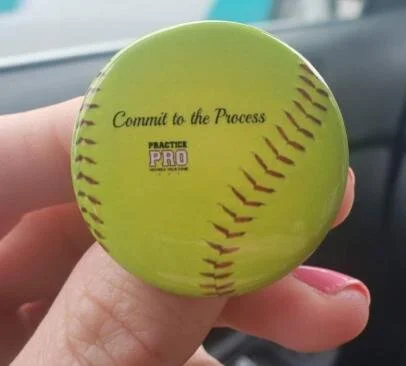3 Must-Haves to Make It at the Highest Level
/After running our first successful college evaluation event with Coach Erica Hanrahan, I wanted to share with you some thoughts I had on playing at a high level before you get to college. 80% of current Practice Pro pitchers are eight grade an under. I believe there are three attributes an athlete must posses to reach A or B level travel play, or regional-level high school play.
I would never discourage anyone from learning to pitch because they probably weren’t going to pitch in the Olympics, but I do believe there are certain attributes and life circumstances a player must posses to play in college.
Read More





















